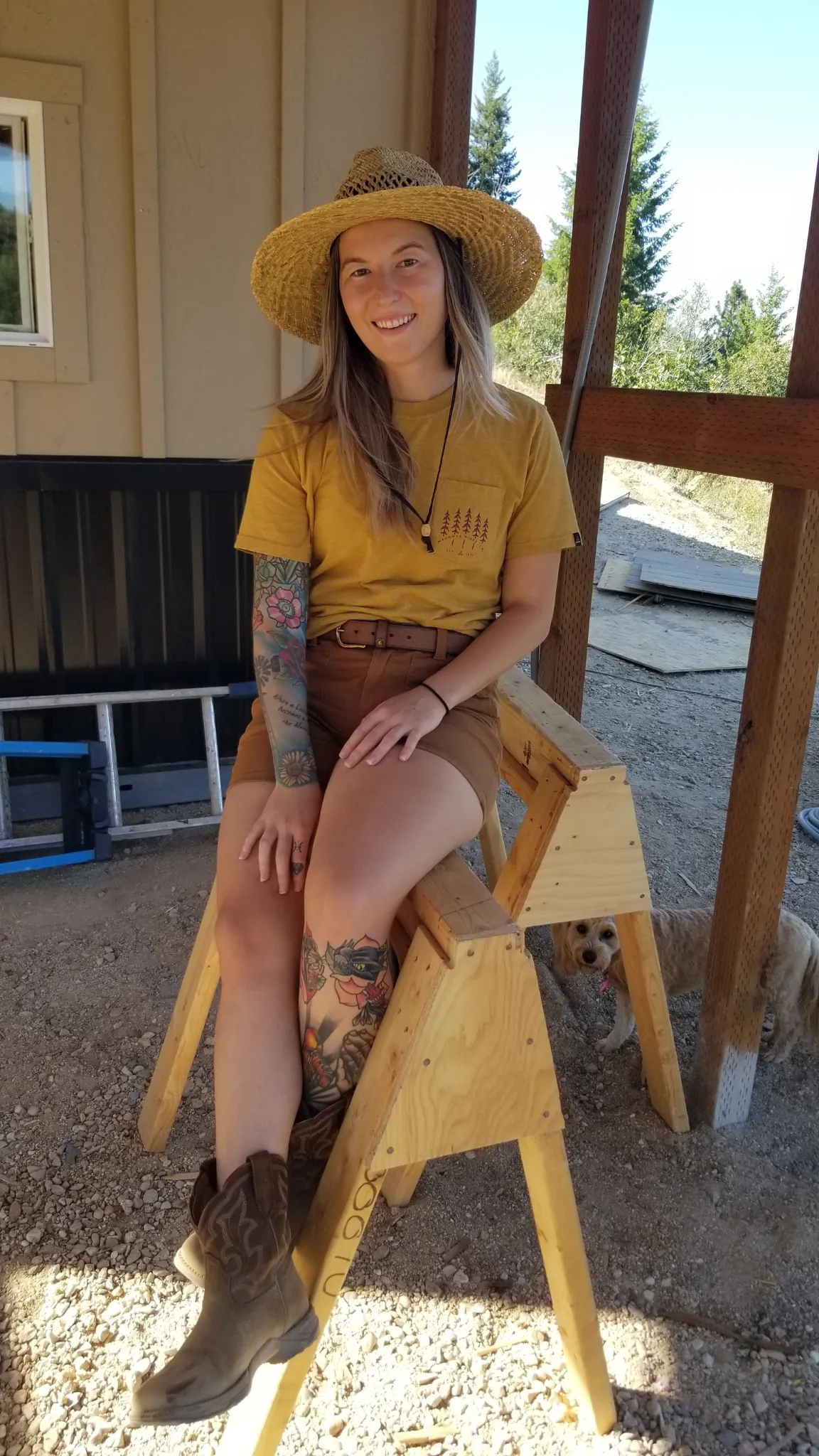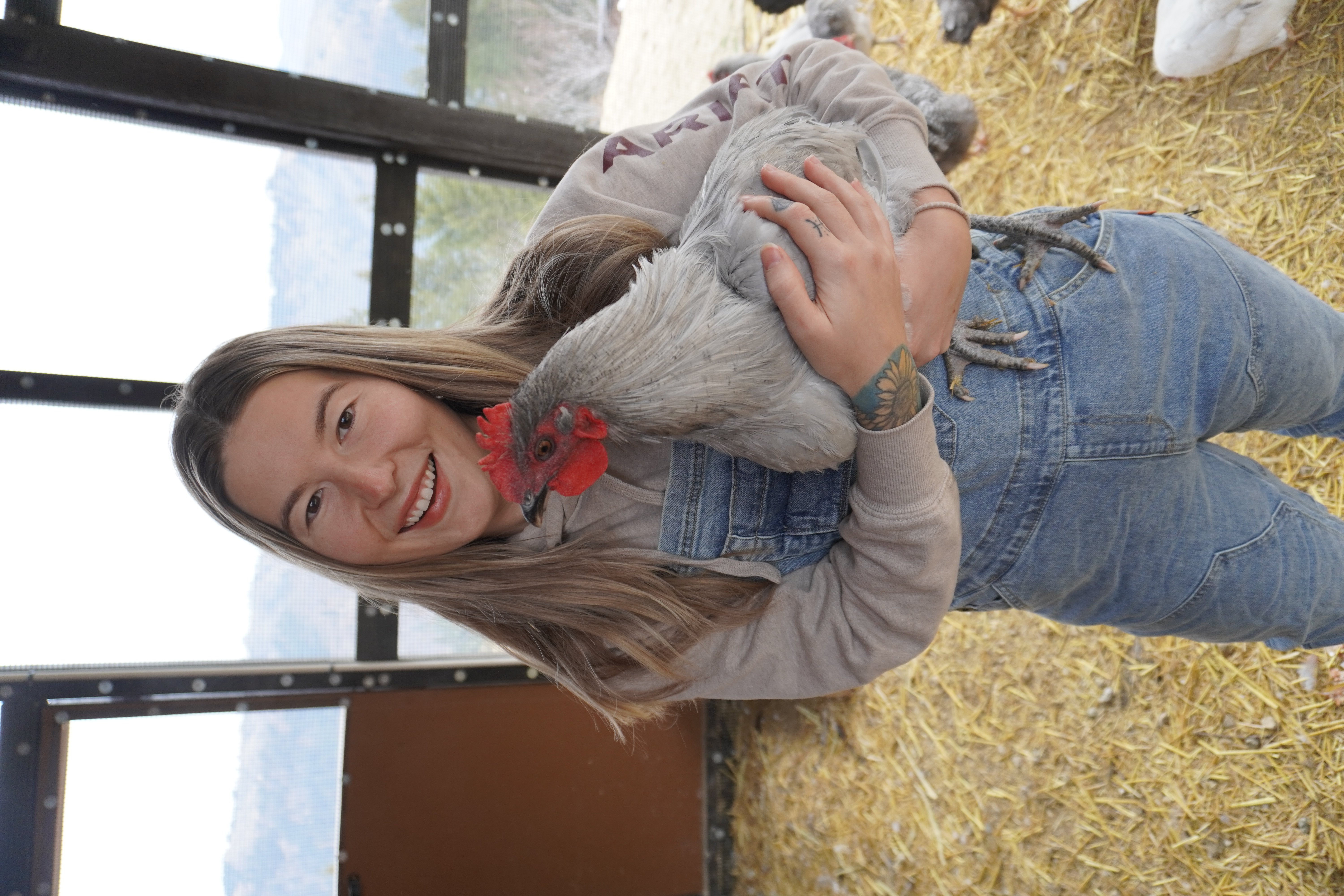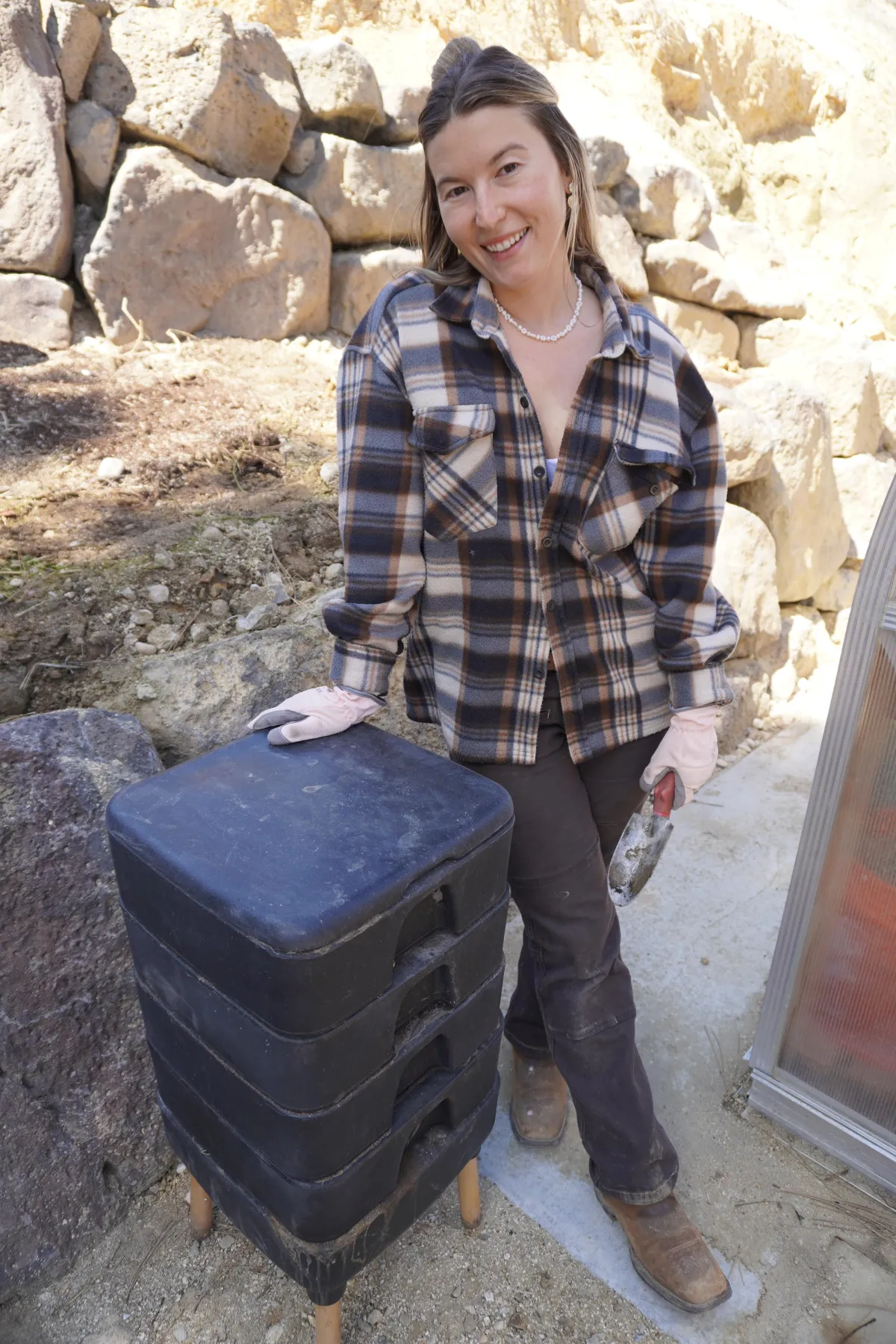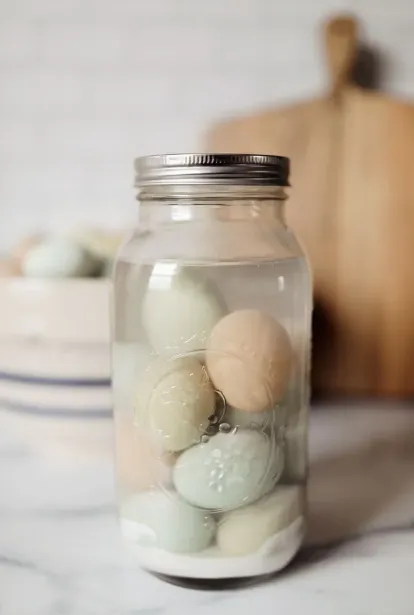



Hey there, I'm Annie!
I'm here to help you navigate the wonderful world of chicken keeping, gardening, and homesteading with confidence and ease.

Midwest girlie
Hailing from the heartland of South Dakota, I'm a true Midwest girl at heart. Growing up surrounded by wide-open spaces and a strong sense of community instilled in me a love for the simple, slower pace of life. Now, I find myself deep in the Idaho mountains with a much more rugged terrain.

Green Thumb Guru
When I'm not tending to my flock, you'll likely find me in the garden, where I've cultivated a passion for growing my own food. From heirloom tomatoes to fragrant herbs, I love nurturing plants and reaping the delicious rewards of homegrown produce.

Community Builder
I believe in the power of community and strive to foster connections wherever I go. Whether it's organizing neighborhood potlucks or sharing tips and advice with fellow chicken enthusiasts online, I'm dedicated to building a supportive network of like-minded individuals who share my passion for sustainable living.
Why Trust ME
I am a dedicated advocate for self-sufficiency, empowering individuals to embrace a lifestyle of independence and resilience. With a passion for helping others unlock their potential, I specialize in guiding people through the challenges of sustainable living, particularly in the realm of poultry keeping, gardening, and homesteading.
Drawing inspiration and experience from my own journey towards self-sufficiency and off-grid living, I understand the obstacles and uncertainties (and there will be many!) that arise when striving to cultivate a more sustainable lifestyle. With a compassionate and personalized approach, my goal is to empower you to overcome obstacles, embrace new skills, and ultimately achieve your goals of greater independence and sustainability.


Why choose my course
My "Hatch to Harvest" chicken course isn't just another run-of-the-mill guide—it's your ticket to poultry paradise! Packed with practical tips, step-by-step tutorials, and insider knowledge, this comprehensive course covers everything from chick care basics to ethical meat production. Whether you're a newbie homesteader or a seasoned chicken keeper, there's something for everyone in my feather-friendly curriculum.
From navigating the complexities of coop construction to mastering the art of raising healthy and productive flocks, I aim to equip all of my clients with the knowledge, tools, and confidence needed to succeed in their self-sufficiency endeavors.
What problems can I solve
Are your chicks giving you the cold shoulder? Struggling to keep your coop clean and pest-free?
Worried about the ethical implications of meat production?
Fear not!
From brooder woes to broody hens, I've got solutions to suit every scenario.
With my expert guidance, you'll learn how to raise happy, healthy chickens and cultivate a thriving flock that's the envy of the neighborhood.

Read The Blog

How I Store Farm-Fresh Eggs for 12+ Months Without a Fridge
Forget freezing. Forget dehydrating. Forget freeze drying.
If you’ve got a steady egg supply and want to preserve them for the off-season, water glassing is one of the best-kept secrets in the homestead world.
It’s old-school. It’s simple. And yes — it really works.
In this post, I’ll walk you through what water glassing is, how to do it, what NOT to do, and how long your eggs can safely last.
What Is Water Glassing?
Water glassing is a time-tested method of preserving unwashed, farm-fresh eggs using a simple solution of hydrated lime (pickling lime) and water.
The lime creates a seal over the eggshell that prevents air and bacteria from entering — keeping the egg “fresh” for up to a year or more.
Used since the 1800s (and especially popular before refrigeration), it’s one of the most effective ways to store eggs long-term without cooking or freezing.
What You Need:
✅ Clean, unwashed, farm-fresh eggs (They cannot be washed! The bloom is essential.)
✅ Hydrated lime (pickling lime) – food grade. I bought this at my local farm supply store where I buy all my canning supplies.
✅ Clean water (distilled or boiled and cooled is best)
✅ A large glass jar, food-safe bucket, or crock with a lid
✅ A cool, dark storage spot
How to Water Glass Eggs (Step-by-Step):
Make the solution
Mix 1 ounce (by weight) of hydrated lime per 1 quart of water
Example: 1 gallon of water needs ~4 ounces limeGently place your unwashed eggs into the container
Pour the lime solution over the eggs until completely covered
Seal the container and store it in a cool, dark location
That’s it. Really.
How Long Will They Last?
Stored properly, water-glassed eggs can last 12–18 months — sometimes longer.
You’ll want to crack them into a separate bowl before using (just to be safe), but you’ll be shocked how fresh they look and smell.
Water Glassing Tips & Warnings:
Do not use store-bought eggs — they’re washed and won’t work
Don’t wash your eggs before storing
Don’t store cracked or dirty eggs
Label your container with the start date
Rotate if you’re adding more eggs over time
What Do They Taste Like?
Almost identical to fresh eggs — especially when used for baking or scrambled.
The texture might be slightly different for fried eggs, but overall, you’ll barely notice.
Why I Water Glass My Eggs:
Because when winter comes and the hens slow down, I like knowing my breakfast doesn’t rely on the grocery store and I don't have to dig into my long term food storage.
Because food freedom isn’t just about growing — it’s about preserving, too.
And because sometimes, the old ways really are the best ways.
Water glassing is simple, safe, and wildly effective.
If you’ve got fresh eggs, don’t waste them!
Preserve them the way your great-great-grandma probably did — and thank her for the tip.
Annie's Homestead is not affiliated by Facebook™ in any way. Facebook™ is a registered trademark of Facebook™ Inc
Branding and Website by RoyalT Studio

